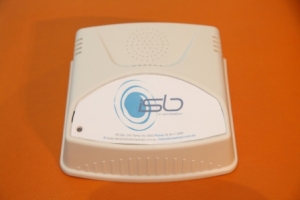Launched in March, In Store Broadcast (ISB) is a purpose-built music and consumer message package specially designed for business settings.
The brainchild of former TTFM radio presenter, Nigel Ross, former FM radio sales expert Cameron Milnes, and retail consultant Paul Williams, ISB is a way for salons to play music without the risk of incurring copyright infringement fines.
Playing downloaded commercial music in a business setting such as a retail store, gym or salon requires that copyright licenses and significant fees be paid to industry bodies such as the Australasian Mechanical Copyright Owners Society (AMCOS) and the Australian Recording Industry Association (ARIA) and non-compliance can attract substantial fines.
Playing radio runs the risk of broadcasting inappropriate music and commentary as well as competitor’s ads.
 ISB is a digital audio player with a hard drive and data cards with individually recorded music and messages. All music copyright fees and licenses are included and there are rich promotion opportunities with targeted voice messages to customers. With no moving parts, dust doesn't affect the unit, which can be stored anywhere out of view.
ISB is a digital audio player with a hard drive and data cards with individually recorded music and messages. All music copyright fees and licenses are included and there are rich promotion opportunities with targeted voice messages to customers. With no moving parts, dust doesn't affect the unit, which can be stored anywhere out of view.
ISB promotional messages can direct customers to selected products or services, or alert them to upcoming events. These can be programmed to play at specific times and dates in sites individually, regionally or nationally.
“ISB messages talk to customers, not at them,” said Ross. “They are in a live, ad-libbed style and sound like a member of your staff rather than a commercial. The music selections and volume are meticulously customised to each individual business. Our customers report substantial increased revenue, especially in direct response to the targeted consumer messages.”
Ross also believes that inappropriate choice of music by staff can also be off-putting and impact negatively on sales, while live radio in store can promote competitors’ ads to your customers.
“These days I’m telling business owners to turn their radios off and to make sure they’re not using their iPods in store,” Ross said. “It just might prove too expensive for businesses in a number of ways.”

